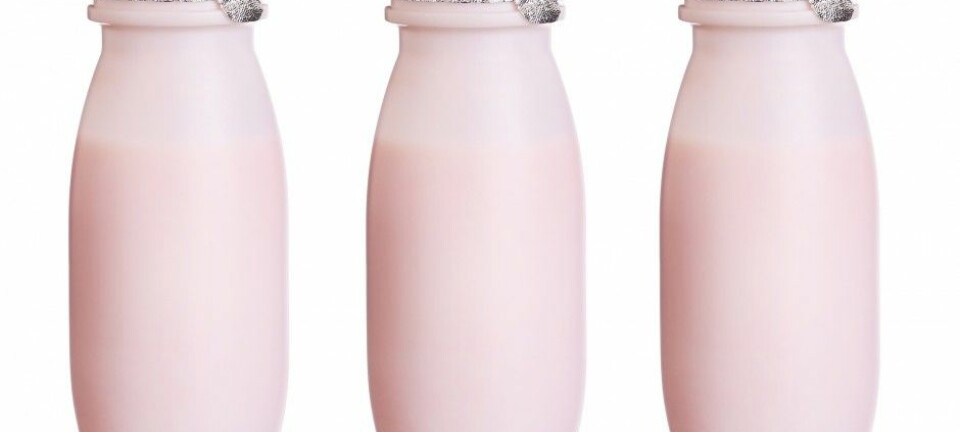
Probiotics do little for weight loss
Oral supplements of viable strains of bacteria (probiotics) seem to have a minimal effect on overweightness or obesity, according to a Norwegian review of scientific trials.
Research in recent years has indicated that trillions of bacteria of many strains in the intestinal tract, the gut microbiota, can have an impact on body weight.
This has led to the question: Can obesity be treated by changing the overweight person’s gut microbiota?
One method of affecting gut microbiota is the ingestion of probiotics – food or food supplements containing live bacteria such as lactic acid bacteria.
Scores of studies have been conducted looking into the effect of probiotics on weight. Heidi Borgeraas and her colleagues at Norway’s Vestfold Hospital Trust have evaluated many of these clinical tests to see how bacteria supplements impact body weight, body mass index (BMI) and fat percentage among persons who are overweight or obese.
They found the effect was not so impressive.
“I would not count on probiotics to reduce body weight,” says Borgeraas, who works with obese patients at Vestfold Hospital Trust.
She presented the results this week at the world’s largest conference on obesity research – “Obesity Week” – which was held this year in Washington D.C. The Norwegian study was also published in the medical journal Obesity Reviews.
Not surprised
Borgeraas and her colleagues found some 800 studies of probiotics and body weight. Most of these were eliminated because they were performed on subjects with normal weights, or they involved patients where various other factors were significant as well. These made it impossible to isolate the effect of probiotics.
Finally they had just 15 studies which compared two groups of participants who were overweight or obese. One group had been given probiotics with live bacteria while a control group was given similar products without live bacteria.
The results showed that the probiotics group on average weighed 0.6 kilograms less than the placebo group when the treatment ended.
Borgeraas is not particularly surprised by that minimal effect.
“This was expected, as it was in keeping with the experiences we have had with treatment for overweightness and obesity,” she says.
The researcher points out that the studies were relative short in duration – a maximum of 12 weeks. It means that the effects could be more significant over a longer period. That said, nothing indicates that longer trials would provide a greater weight reduction.
Weak basis
Jan Raa, a retired microbiology professor at the University of Tromsø, thinks Borgeraas’s study is rock solid:
“This is a very convincing meta-analysis of some placebo-controlled studies in the field,” he writes in an e-mail to ScienceNordic’s Norwegian partner forskning.no.
He is not exactly thunderstruck by the result.
“Globally, probiotics are sold for – perhaps [billions of dollars] per year. The targeted market is comprised of consumers who are convinced that probiotics are healthy, help counteract ordinary complaints and that some probiotics products even work against obesity,” writes Raa.
“However, attempts at isolating the beneficial effect of fermented products into individual components, for example pure cultures of their bacteria, have failed. The effects have been very modest and have swung both ways, weight gain and weight loss.”
Raa thinks the theoretical foundations for many of the health benefit claims of probiotics are unsound. In 2016 he and colleagues published an article challenging such assertions.
Do the bacteria survive?
One of the questions asked by both Borgeraas and Raa is whether the bacteria in probiotics even survive in our digestive tract.
“No one has ever proved that the bacteria in probiotics have managed to get a foothold among the gut microbiota,” writes Raa.
Another question is whether the little effect seen in Borgeraas’s study can actually be traced to living bacteria. In most of the 15 studies, the participants received fermented products – for instance fermented dairy products.
Raa explains that these products also contain compounds made by the bacteria during the fermentation process.
Such substances can be just as important as the bacteria themselves. This has surprisingly been observed in medical tests of patients who have severe intestinal infections and have had faeces from a healthy person inserted into their intestines.
“It was seen that the effect did not pivot on the bacteria in the faeces sample being alive,” he writes.
“The biochemical cocktail produced by the faeces bacteria has the same effect.”
Bacteria still important
Despite all the uncertainties, the main message is that probiotics products do on average have a minor effect on reducing obesity.
Nevertheless, the studies analysed by Borgeraas and her colleagues have not exposed the general role played by gut bacteria on body weight.
Raa, however, is convinced that gut microbiota have an impact:
“There is no longer any doubt about the influence that microbiota can have in a sensible strategy against obesity,” he writes.
“But how? That question is still unanswered.”
-------------------------------------
Read the Norwegian version of this article at forskning.no
Translated by: Glenn Ostling
































